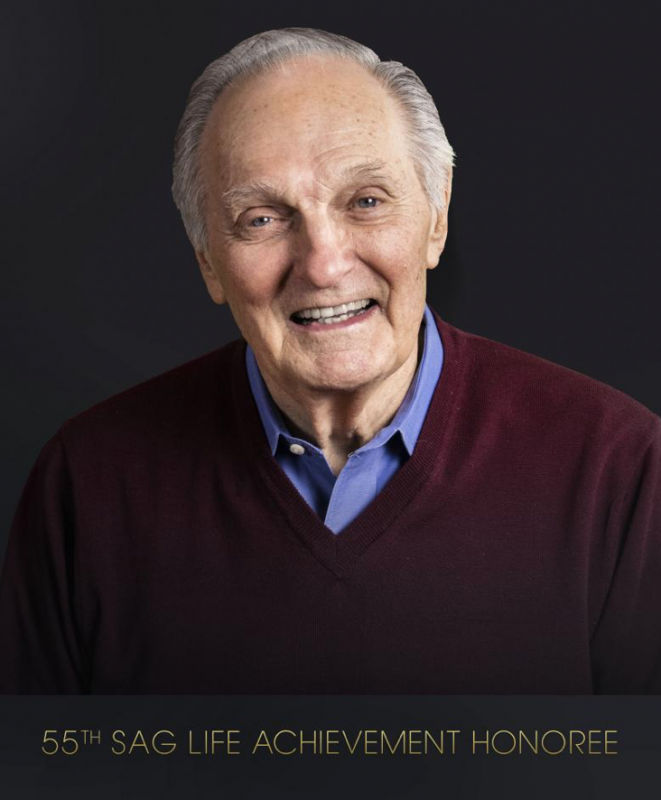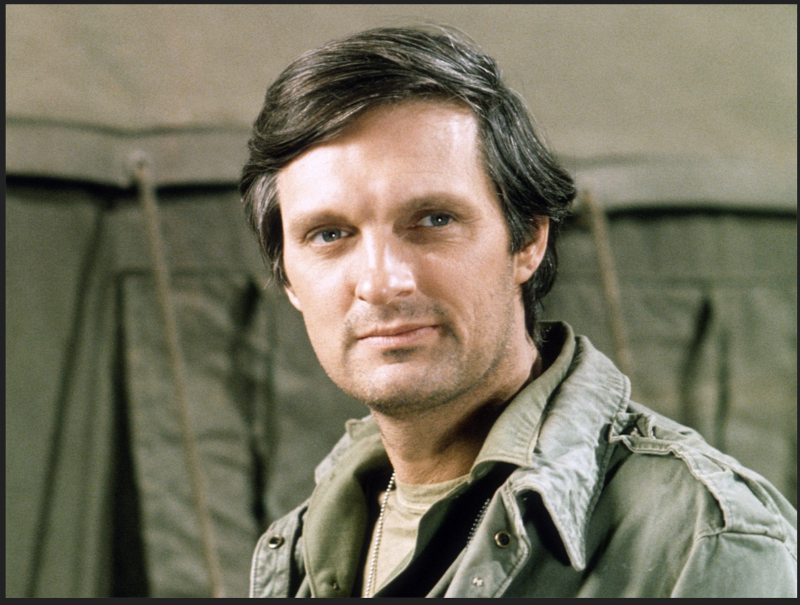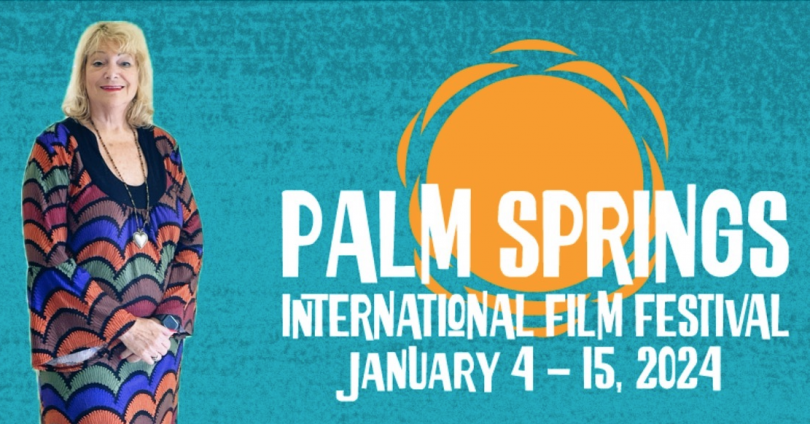|
|
||
|
Pro Tools
FILMFESTIVALS | 24/7 world wide coverageWelcome ! Enjoy the best of both worlds: Film & Festival News, exploring the best of the film festivals community. Launched in 1995, relentlessly connecting films to festivals, documenting and promoting festivals worldwide. We are sorry for this ongoing disruption. We are working on it. Please Do Not Publish until this message disappears. For collaboration, editorial contributions, or publicity, please send us an email here. User login |
MarlaLewinGFVReporting on movies, film festivals, film production, premieres, movie events, industry trends and plays from around the world  The Global Film Village: Writing for the Genre World a WGA panel at the AFMby Marc Halperin
Stephen Susco, Mick Garris, Larry Cohen, Juliet Snowden and Stiles White photo by Marc Halperin
Writing for the Genre World a WGA panel moderated by Mick Garris( creator/producer: Masters of Horror; writer/director/producer of Riding the Bullet, Fear Itself and many others. Larry Cohen writer; Phone Booth, I, the Jury and writer or director of numerous other genre favorites. Juliet Snowden and Stiles White co-writers of Boogeyman and Knowing. Stephen Susco writer: The Grudge 1 and The Grudge 2 and Red.
Mick Garris began the panel at the AFM by stating that lately genre equates to horror. His first question to the panel was “Is genre something you chose or something that chose you? “
Larry Cohen: I created Branded in The Invaders television shows. I like to make horror films and thrillers. I write on spec. I’m ignorant of what happens in the world now. I read the trades but it just ruins your day everyone else has a job. Even when I had a studio job everyone complained. I direct a lot of my stuff too.
Juliet Snowden: We just want to tell great stories. We try to have an interesting dramatic element and layer in a supernatural element on top of that.
Stiles White: I handle the blood and guts. When we started in the business a genre element was just a log line, but it grabbed more attention than the dramatic long line. Growing up, we were both fans of 70s and 80s horror films. I was working in special-effects for Stan Winston Studios. That meant because of my day job, I knew what the budget effect would have been for an element that I wrote into the script.
Stephen Susco: It just sort of happened, I read stories as a kid, starting with Ray Bradbury. (Mick Garris agrees with him) and I found Stephen King books when I was 11 years old and I read all of those, but my folks wouldn’t let me read The Shining. I found it under their mattress when they went away on vacation obviously it destroyed my life.
Mick: But it gave you a career.
Stephen: I was the type of kid you found waiting outside the video store to find someone to rent me an R rated Horror film instead of looking to buy beer. We got cable television when I was 8 years old and I was told don’t turn the dial. You see in those early days we had regular cable and the dial had to be switched to receive premium. One night I snuck downstairs at 3 AM and switched the dial, what I saw was the final shot of the Invasion of the Body Snatchers with Donald Sutherland being possessed and I was hooked.
Mick: Horror seems to go in waves. And if tomorrow genre goes away, it will always come back. It doesn’t cost a lot to make films of this type and fans love the ride. Horror has more of an appeal to outsiders. Were you guys outsiders?
Larry: I was the class clown. I always went to the movies and could watch them 3 times in a row. Maybe that helped me understand how they were constructed. I also created my own comic books and storyboards as a kid. It is really simple, if the audience screams and jumps then it works. If not it doesn’t work.
Mick: Horror and comedy both depend on timing.
Larry: With comedies you have to keep making them laugh. With Horror you need something unique and you throw in 3 or 4 key scenes and everybody is happy.
Mick: Horror is now about and for teenagers. Mostly its 18-21 year old males. Hot and single girls is what they want. FaceBook, Twitter, and other social networking sites are what the studios are targeting. Promotion and buzz has moved on line.
Stephen: Our audience is People who don’t have cars, So what they go to see are what their parents don’t want to see. The tricky part is getting the studios to put them out there in a big way so that everyone knows they are available.
Larry: If I was told to write something for 12-14 year old girls I would find another business. Today they aim just for kids. I go on writing what I want to write. Kids Suck. (laughs)
Juliet: I haven’t been put in the position and told what to write. We pass on 90% of the stuff we’re sent.
Stiles: Monday morning studio meetings have gotten to the point where they are re-looking at what was passed on recently because something did business over the weekend. They’re now looking for PG13, plenty scary, plenty of thrills, without F-word bombs and no nudity or even too much blood. Wes Craven once said, “a Horror movie puts you into a film where you can safely play with your fears and win.”
Mick: Masters of Horror was based on a 10 day shoot, it was a true low budget formula. Showtime financial contribution was not a big part of the budget. Anchor Bay was able to do well with it just from the video sales. Have any of you written for the VOD or internet audience?
Larry: No
Juliet: No
Stiles: This is a new area and there is a lot of experimentation going on but nothing has solidified yet. There are new serialized episodes. There are some with new episodes every monday on Fear.net. They’ve done supplemental episodes for 30 Days of Night and Grudge.
Juliet: I think the question here is how do you make money doing this?
Mick: What are the new trends in horror and where do you see it going now?
Stephen: So many Studio Execs don’t get horror. They don’t like it. They think you have to talk down to the audience. You can target the audience, 15 year olds get it. All it takes is for one horror film of a new style to do business and the gates are thrown open.
Mick: Now we’re going to have hordes of amateur filmmakers making Paranormal Activity films.
Stephen: It just means more crap is on the way.
Juliet: The rates for actors are falling. Knowing was written 5 1/2 years ago and it took forever to get made. In my opinion, don’t go to Film School. It’s a waste. Take the money and make a movie instead.
Stiles: There were a lot of Paranormal Activity, found footage films made over the years. This one rose above the level of the others which were mostly crap. They got Lucky. The two lead actors really made it work so it didn’t seem like an amateur movie. The two producers were smart about getting the movie out there on the social network. They let people get involved in the release of the film. There are fewer drive-ins and video stores are less important the Internet has become the new underground and is a community. You have to look at the internet as a selling tool.
Stephen: There are no romantic comedy dedicated websites or Twitter groups. The Horror genre has all of these and they are active. This audience constantly wants to see these movies and new ones. They know what kind of scary movies they want and talk about it.
Mick: The Acme Cinema ( a cobbled together system with your computer tied to the television and stereo) is the drive-in of today. Home theatre is better than many actual theatres. The changing of the platforms is changing the language of cinema and television. In previous years television by necessity was filled with close-ups but now with big screen TVs it is more cinematic. Most people today see movies primarily on television screens.
Larry: Cinema is a group experience and people enjoy that. Davie Crockett was the first film that succeeded on television and then became a cinema experience. Disney created the fad on television and then put the same movie in theatres and people came to see it again in theatres.
Mick: IFC and Magnolia have made some great steps in this direction. Lets talk a little about your first projects.
Juliet: We got married and were both working full time jobs with long hours but we came home and wrote. Every night and all of every weekend. Our friends never saw us. But one day a friend read one of our scripts and got it to 4 agencies. All 4 passed. We got a call from an agent at UTA and set up a meeting with us. We were very excited. We met and they told us they loved the script but they had just quit the agency and they wanted to be our managers. I wanted to cry. After 10 years they are still our managers. They produced Knowing for us and it turned out great.
Mick: My first job was in Publicity at Embassy Pictures and then Universal. I had been doing "making of movies" for promotion and did one for Goonies. I got a script to Spielberg. He asked me if I would write a script for Amazing Stories and it became the first episode. They asked me to write another and after that I became the Story Editor on the show.
Stephen: I wrote my first screenplay as a freshman in college, I read Syd Fields book and a adapted a Stephen King book that I liked. I drove to many and dropped it off at his mail box. A few days later I saw a television news story where a bomb squad came and blew up a mysterious package that had been delivered to his home. I hadn’t known that he had been receiving bomb threats. I wrote a letter of apology and they wrote back and asked to read my script. Unfortunately it was based on the book Rage which was taken out of release after Columbine so it will never be made. But if you are passionate about writing you need to keep at it.
Larry: When I started out I tore out the names and addresses of all of the production companies from the phone book and went to see them. I asked what they were making or wanted to make and went home and wrote it and went back. I did this over and over again. I figured eventually someone would like one of them or feel sorry for me. I finally got an agent but it was William Morris so I was never heard from again.
Mick: Horror is a liberating just like rock and roll. It allows you to express your primal side. The future, I hope will be better than now. I hope it won’t be filled with a lot of shitty amateur movies. What do you think will be the next trend?
Juliet: Japanese Horror films were great when they first came out as they were completely new and different.
Stiles: Wes Craven once said, “If you are out there with the next step, studios won’t get it.” Groundbreaking films come out of the air and are not planned by existing studios”.
Juliet: The Ring was a great film.
Stephen: Paranormal Activity would not have survived a studio development process. This is my experience dealing with a foreign remake. The Grudge was produced by Sam Raimi(Spiderman). He has a major track record and we had the original director attached. I took the originally first two japanese films and edited them together and made my own show real complete with my own subtitles. We then used this to pitch the project. We were developing this for Mandate who were able to raise 120% of the budget and wanted to make it palatable for the american audience. In american horror good guys win and the bad spirits are appeased so everything is okay in the end. In asian horror films a large portion of the population believes that the spirits of our ancestors are always with us and they even have shrines in their homes to keep them happy. So we had our hands full making this work but I think we succeeded. There is a scene in the first film where an Asian detective listens to Sarah Michelle Geller tell him about the spirit that is after her. He just replies matter of fact, “You’ll die.” Stiles: We don’t worry about winning awards, our fans are at Comic-con and waiting out there for our next films. 20.11.2009 | MarlaLewinGFV's blog Cat. : Amazing Stories Boogeyman Bullet Cable TV Davie Crockett detective Director director /producer Donald Sutherland editor Embassy Pictures Entertainment Entertainment Facebook Fear Itself Fear.net Fiction Film found footage films Horror and terror Horror fiction Horror film Human Interest Human Interest I the Jury Invasion of the Body Snatchers Juliet Snowden Juliet Snowden King Knowing Larry Cohen Larry Cohen Larry Cohen Marc Halperin Masters of Horror Masters of Horror Mick Garris Mick Garris Paranormal Activity Phone Booth Producer Quotation Ray Bradbury Ray Bradbury Sam Raimi Sam Raimi (Spiderman) Sarah Michelle Geller Saw Stan Winston stephen king Stephen King Stephen King Stephen Susco Stephen Susco Stiles White Stiles White White Studio Execs Technology Technology The Acme Cinema The Grudge 2 The Shining Twitter Wes Craven writer writer /director Interviews
|
LinksThe Bulletin Board > The Bulletin Board Blog Following News Interview with EFM (Berlin) Director
Interview with IFTA Chairman (AFM)
Interview with Cannes Marche du Film Director
Filmfestivals.com dailies live coverage from > Live from India
Useful links for the indies: > Big files transfer
+ SUBSCRIBE to the weekly Newsletter DealsUser imagesAbout MarlaLewinGFV Lewin Marla Lewin Marla (Global Film Village)
htttp://www.magiclampreleasing.com http://www.globalfilmvillage.com
View my profile Send me a message The EditorUser contributionsUser links |
























 Marla is a producer, playwright, screenwriter, publicist and now a journalist. She attends 12 to 20 film festivals per year. She has spoken on filmmaking at many festivals including Cannes and SXSW.
Marla is a producer, playwright, screenwriter, publicist and now a journalist. She attends 12 to 20 film festivals per year. She has spoken on filmmaking at many festivals including Cannes and SXSW.


